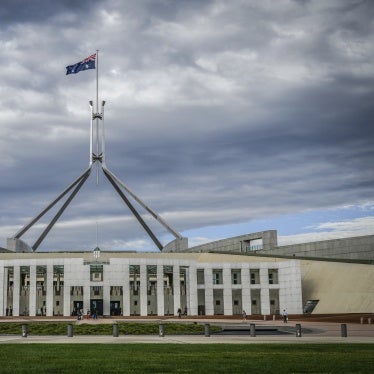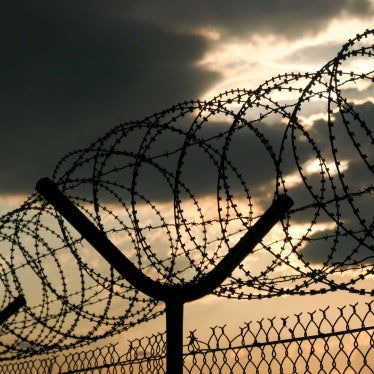On Tuesday, Australia’s National Children’s Commissioner released a report, “Help way earlier!”, that finds that Australia is failing to protect children’s rights in its criminal justice system.
Commissioner Anne Hollands based her findings on interviews with 150 children and young people who have experienced the system firsthand. The report makes 24 recommendations, including banning solitary confinement for children throughout Australia and raising the age of criminal responsibility to 14. In most parts of Australia today, children as young as 10 can be detained.
The report finds that First Nations children with intergenerational trauma and children with disabilities were too often being criminally prosecuted. Many of these children were experiencing poverty, marginalization, and systemic racism, but their basic needs, such as safe housing, were not being met. Instead, they faced incarceration.
The report also highlighted that that many of the children detained are living with disabilities and mental health conditions, which can be exacerbated by harsh conditions, including solitary confinement.
Previous reports, including the Royal Commission into Violence, Abuse, Neglect and Exploitation of People with Disability, have also made recommendations to ban solitary confinement and raise the age of criminal responsibility. However, most Australian state and territory governments have not acted on these recommendations.
Last week, Victoria’s government announced it had abandoned its plans to raise the age of criminal responsibility to 14 and said it would only raise it from 10 to 12.
No jurisdiction in Australia currently prohibits the use of solitary confinement with children. Solitary confinement is damaging for all prisoners but it is particularly harmful for children and people with disabilities. The stress of a closed and heavily monitored environment, absence of meaningful social contact, and lack of activity can exacerbate trauma and cause long-term, serious, and irreparable harm to children and people with disabilities. In 2018, Human Rights Watch found that people with disabilities in Australian prisons were disproportionately placed in solitary confinement.
The Commissioner’s report concluded that while criminal justice was largely the responsibility of states and territories in Australia, national leadership is needed. It calls on the federal government to introduce a National Children’s Act alongside a Human Rights Act.
Mistreatment at the hands of the criminal justice system can have devastating and even deadly impacts on children. All Australian jurisdictions should respond swiftly and decisively to the Commissioner’s recommendations.









